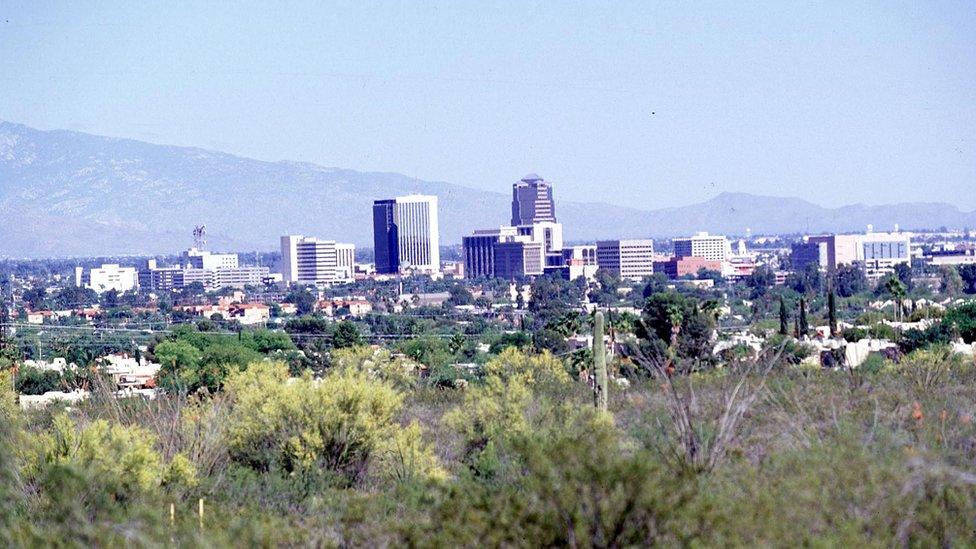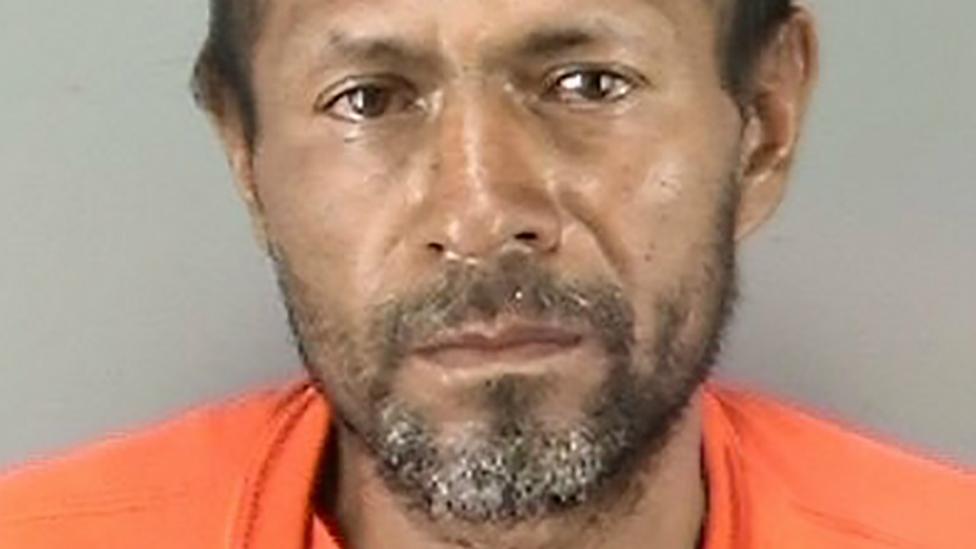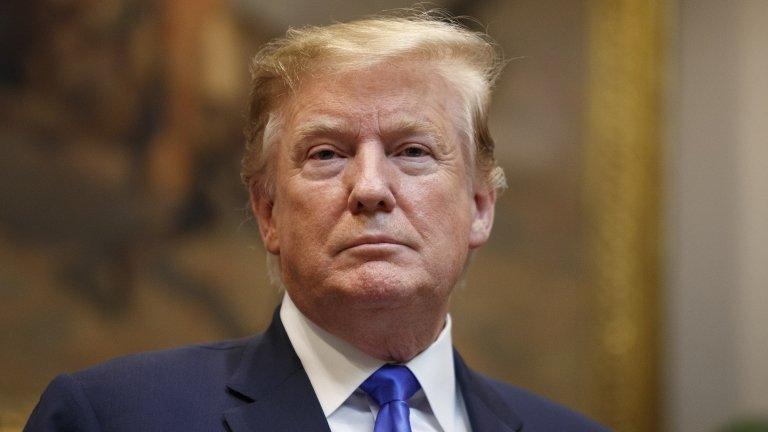Tucson: Voters in liberal US city reject sanctuary city status
- Published

Tucson is the second-largest city in Arizona - a state that voted for Mr Trump in 2016
Voters in Tucson have overwhelmingly rejected a move to become a "sanctuary city" - a city with policies to aid undocumented immigrants.
The measure would have put more restrictions on how police enforce immigration laws.
Activists pushed the bill to give a voice to the Latino community in Arizona state's second-largest city.
But opponents argued Tucson was already immigrant-friendly and that the measure would do more harm than good.
In an interview before the vote on Tuesday, Mayor Jonathan Rothschild was quoted by AP news agency as saying: "The city of Tucson, in all respects except being labelled as such, operates as a sanctuary city."
The mayor and city council members - who are all Democrats - were worried about unintended consequences of becoming an official sanctuary city, like losing millions of dollars in state and federal funding.
President Donald Trump has repeatedly criticised sanctuary cities and has threatened to withhold their access to funding.
A federal court ruled in June that the administration could consider a city's enforcement of immigration laws when deciding how to distribute federal funds.
Mr Rothschild also said the initiative would have placed unnecessary burdens on officers even on issues unrelated to immigration.
The ballot measure was intended to counter a 2010 Arizona immigration law known as SB1070, which sparked mass protests and boycotts of the state. After revisions to the bill, courts upheld the requirement for police officers to check immigration status of people they suspected to be in the US illegally.
While Tucson voters rejected the sanctuary city measure, they also elected the city's first Latina mayor, Regino Romero.
Sanctuary cities under threat by Donald Trump
- Published8 July 2015

- Published12 April 2019
